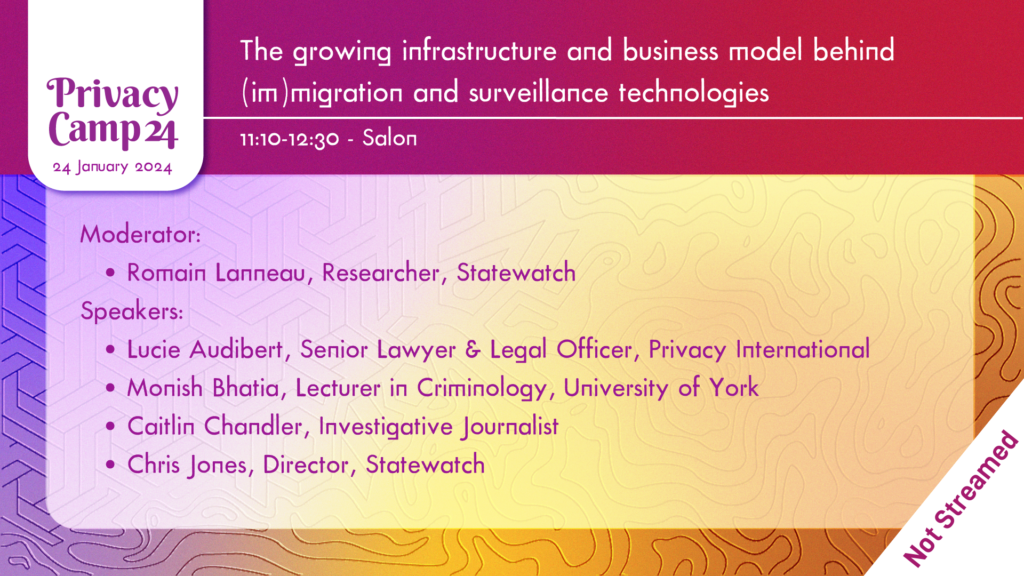
Despite the surveillance and spying scandals that have come to light over the last decade – through the work of Wikileaks, the Snowden revelations, and the exposure of governments’ use of Predator and Pegasus spyware – powerful institutions continue to entrench the use of invasive tools and technologies. This panel will provide both ‘micro’ and ‘macro’ level case studies to analyse key developments in this field: from the use of government-mandated GPS ankle tags for migrants in the UK, to the global roll-out of travel surveillance systems at the behest of the United Nations.
These projects are tied together by shared political objectives and ideological dynamics: the embrace of tech ‘solutionism’ by governments, an array of corporate actors all too happy to provide those solutions, the toughening and restructuring of state borders, and the long tail of the West’s colonial history and the structural racism underpinning it. The people placed under constant surveillance by the state and those prevented from travelling due to being placed on secretive government watchlists pay the heaviest price, but these systems also undermine democratic norms and standards by deepening social divides, stigmatising the ‘other’, and placing decision-making in the hands of unaccountable, technocratic bodies.
This panel will provide information and insights from recent research on these topics, explain the key actors and institutions involved, and explore ways to challenge those propelling and profiting from the ongoing expansion of new techniques of surveillance and the harms they cause.
Moderator:
- Romain Lanneau, Researcher, Statewatch
Speakers:
- Lucie Audibert, Senior Lawyer & Legal Officer, Privacy International
- Monish Bhatia, Lecturer in Criminology, University of York
- Caitlin Chandler, Investigative Journalist
- Chris Jones, Director, Statewatch